Belltown Bloom
I have found that there are two distinct reasons to go to live shows. You’re either there to be with the music, or you’re there to be with each other. I think the reason why I really enjoy going to local festivals, as opposed to gigantic national ones like Coachella, is the balance they strike between these two impetuses. BIG BIG festivals boast some of the most talented people in the country (on Earth, sometimes) on a humongous stage, their actual bodies far far away from most of the audience, who are there to take drugs and wear sunscreen and make TikToks about the fact that they could afford to be there.
The acts at a festival like Belltown Bloom, in comparison, are so much more tangible and accessible. They’re people who live around you, who might frequent the spots you frequent or live in the spaces you live. They might very well be your actual friends, and if they aren’t, you could very well find yourself making friends with them before or after they’re on the stage. (There’s a chance at least, much more so than the kinds of acts with entourages and touring staff and other necessary facets of being a “successful” artist.)
The only difference, really, between you and them is the courage they summoned to pursue their creative visions: to stand on stage in front of their peers and believe in themselves.
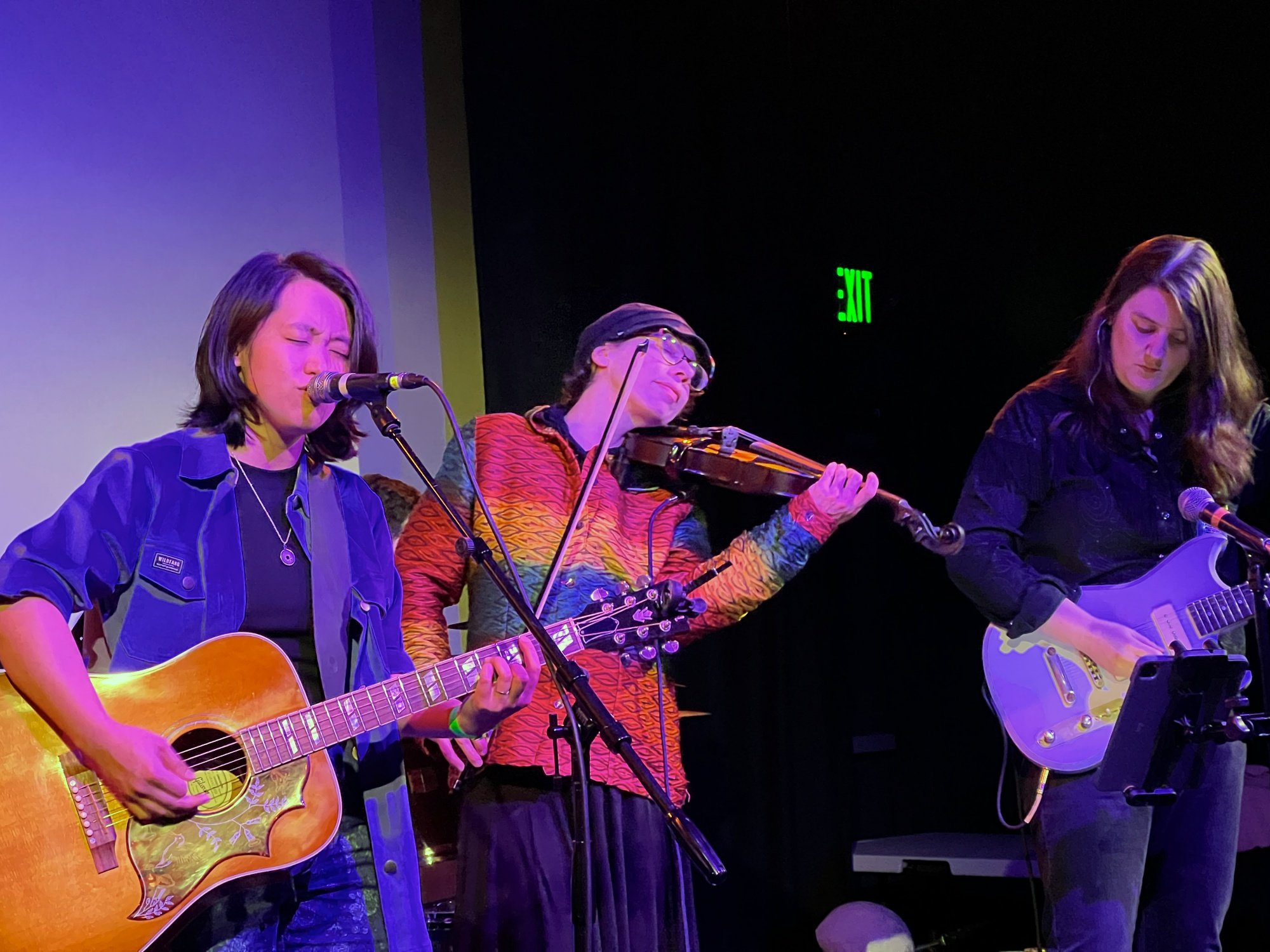
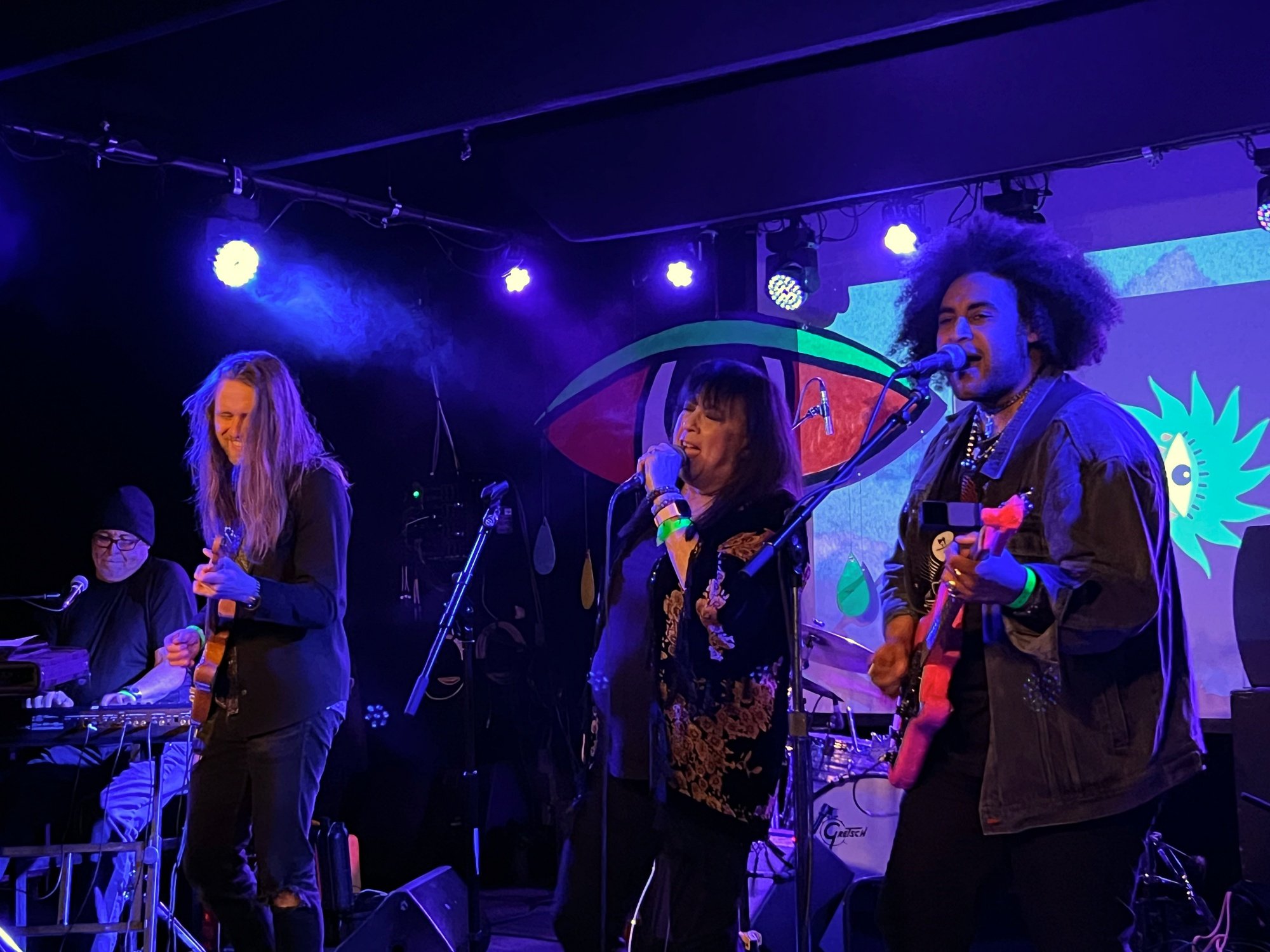
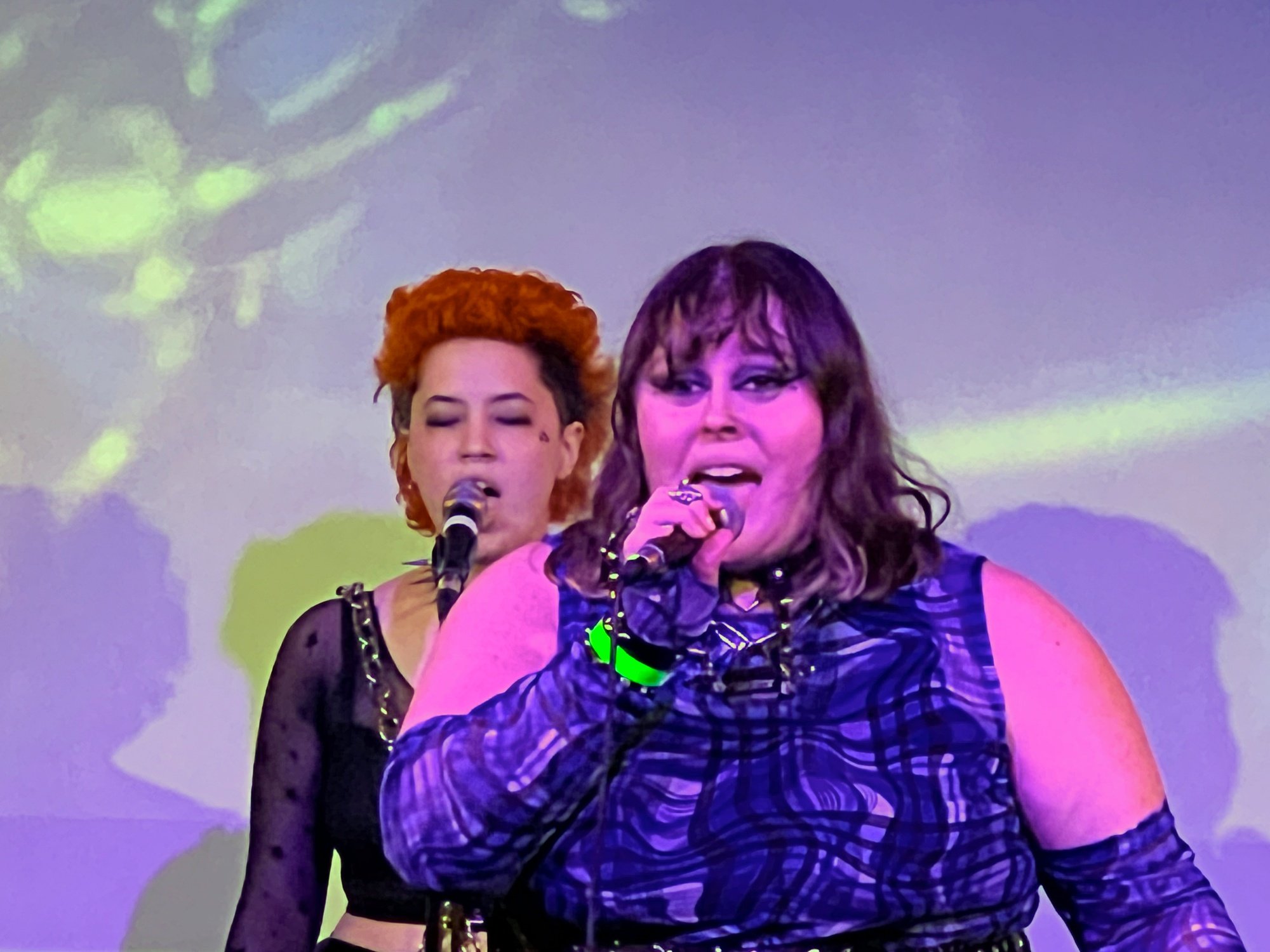
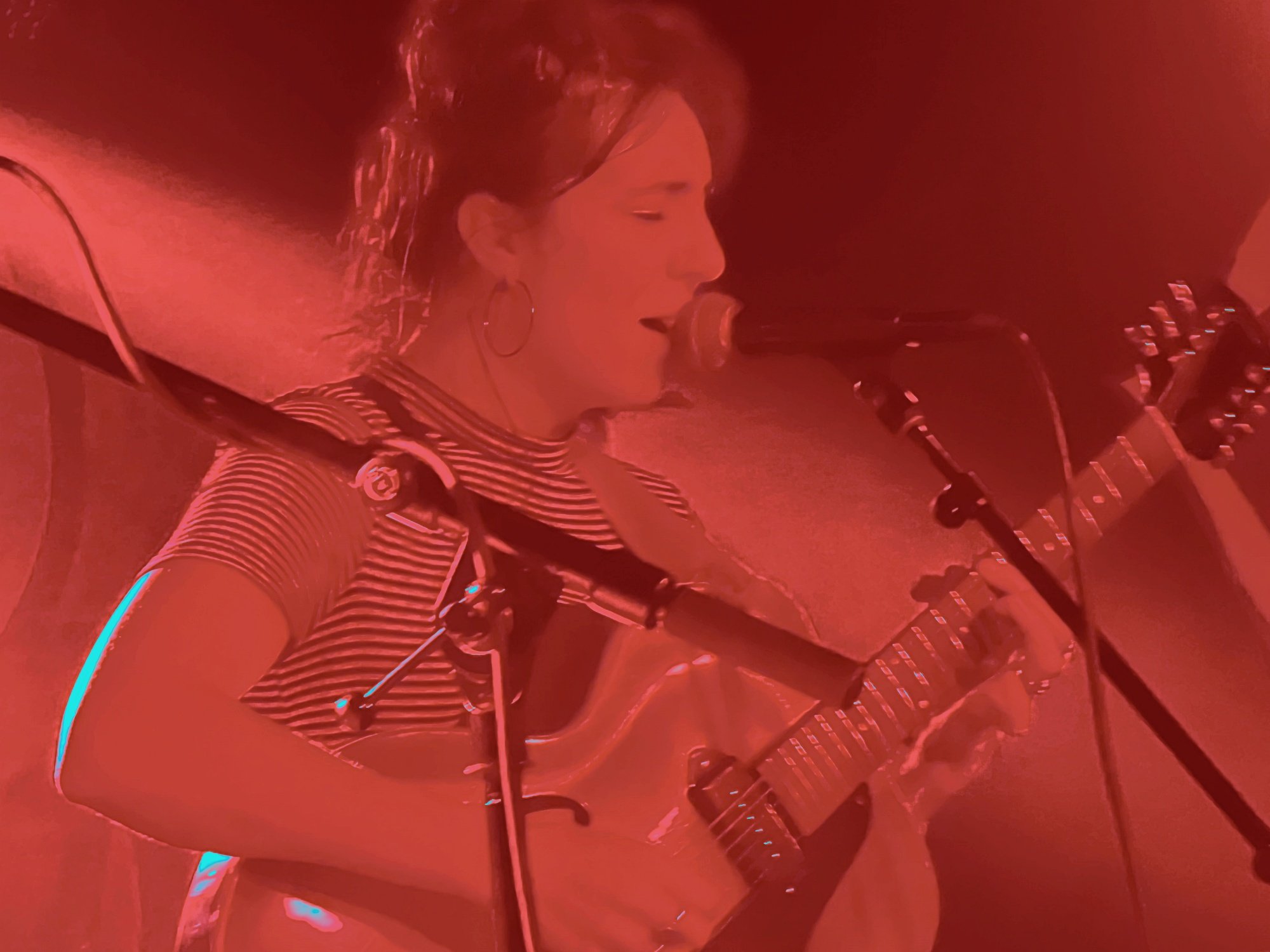
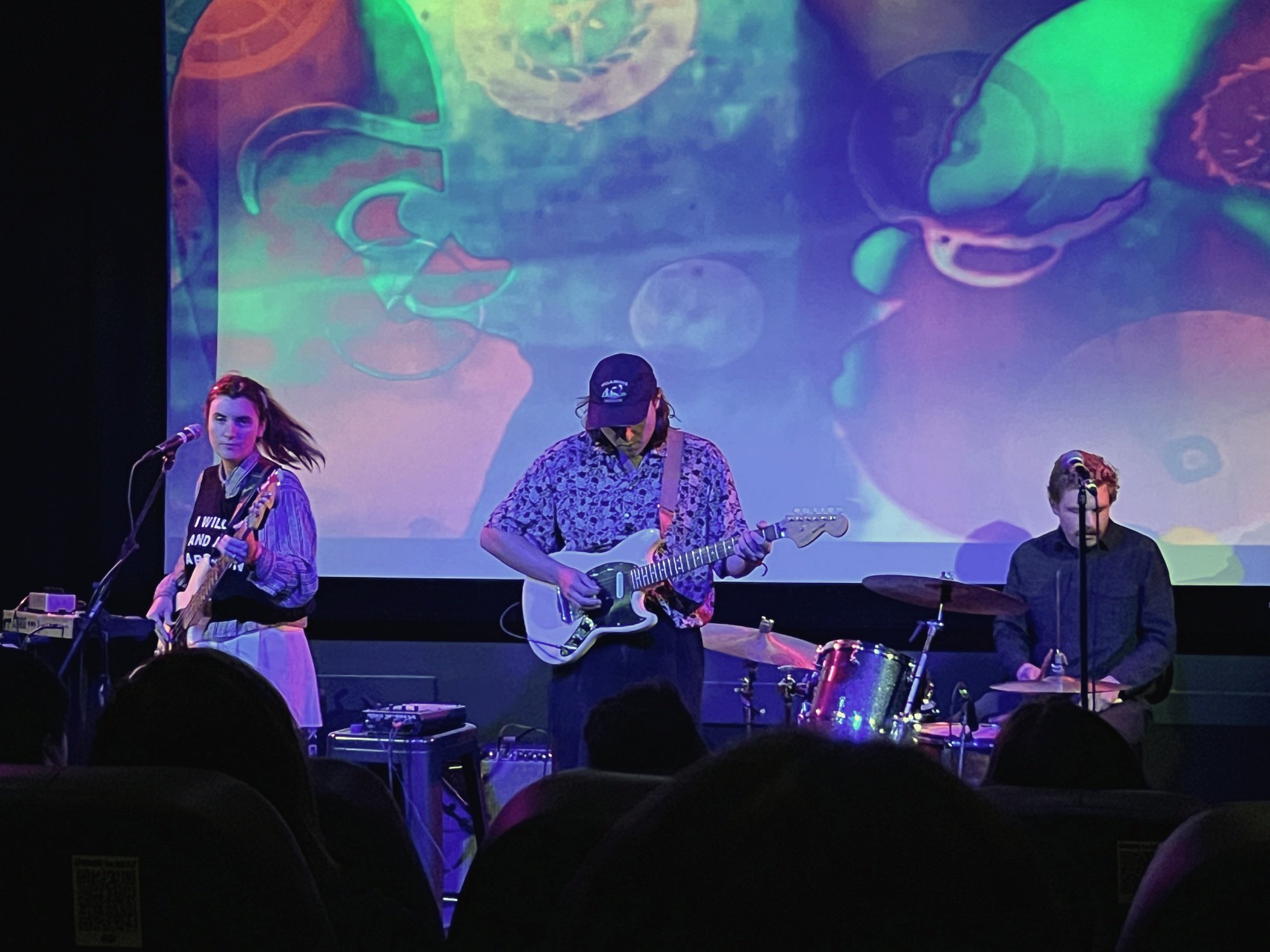
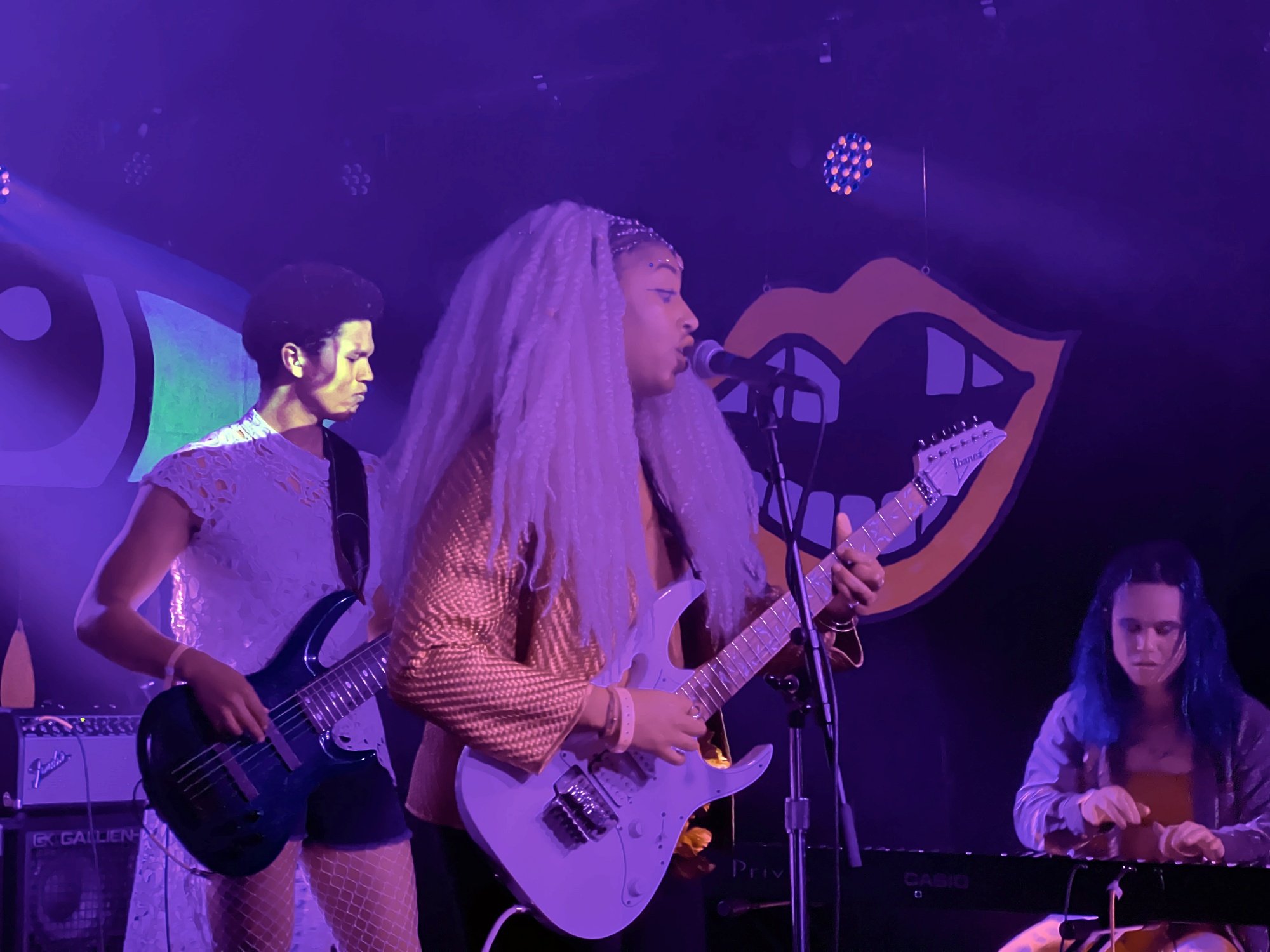
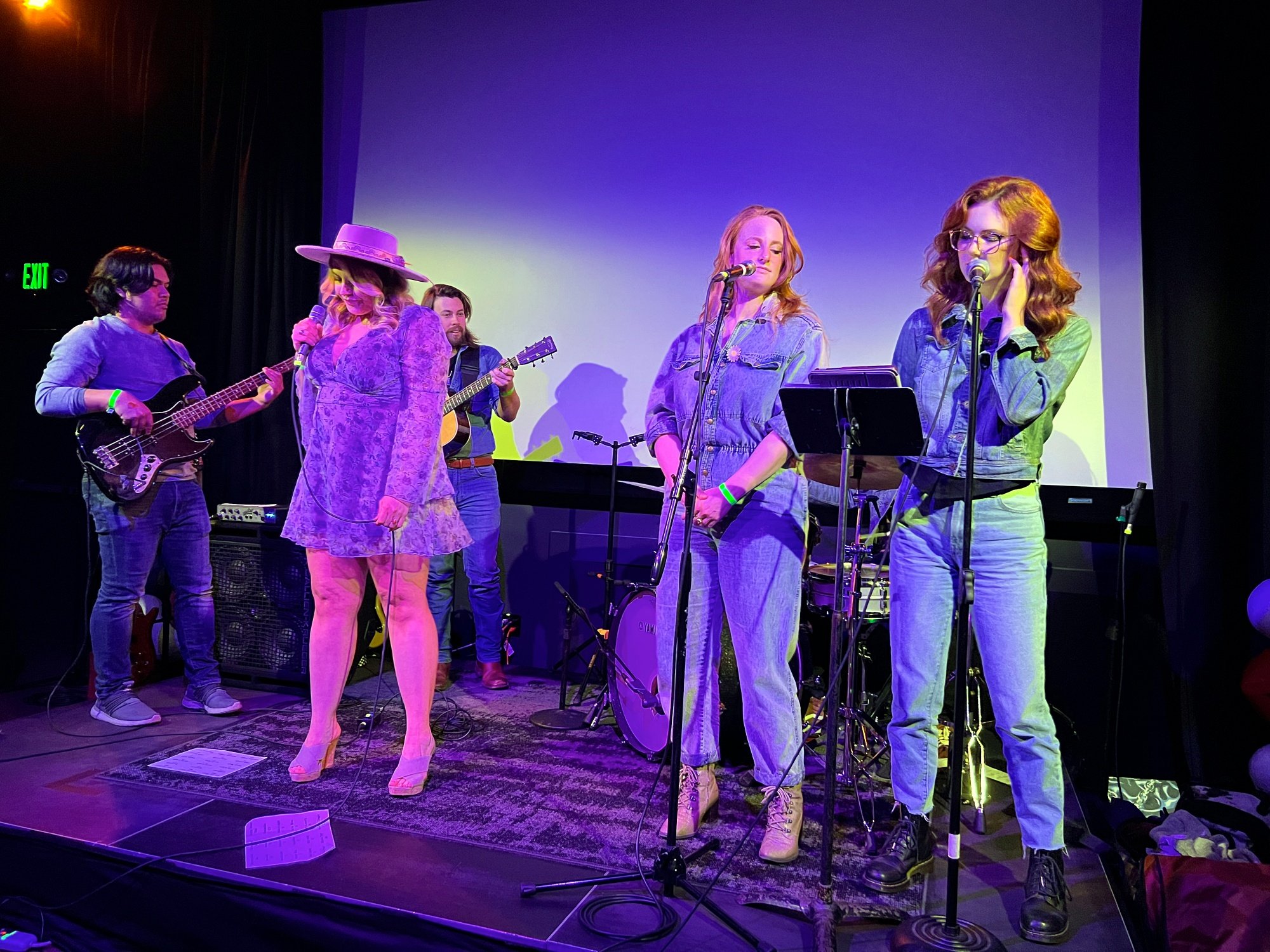
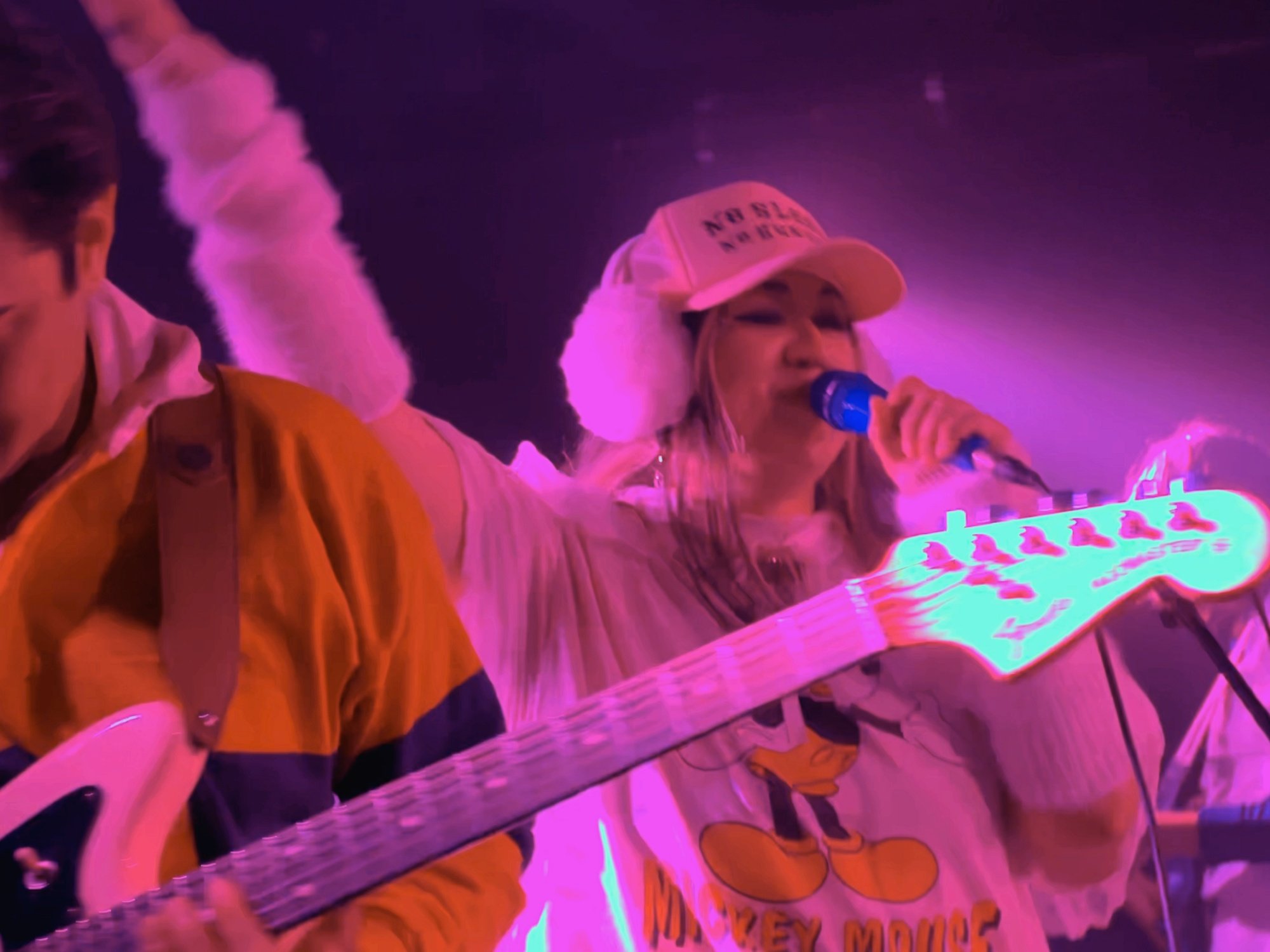
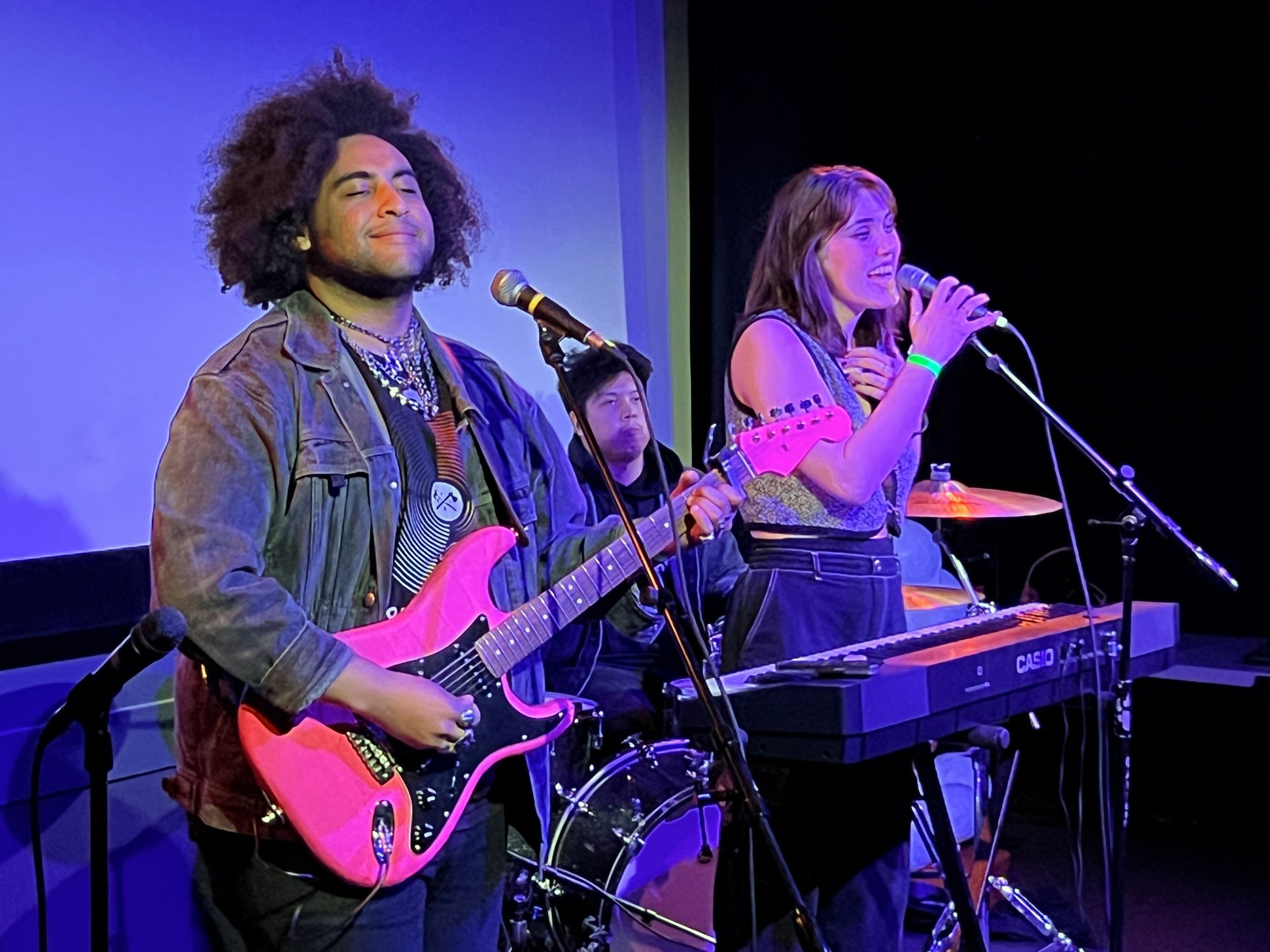
Plenty of that was on display at the two-day festival, which was organized by Valerie and Veronica Topacio, frontwomen of La Fonda. Belltown Bloom’s third year since 2019 once again prioritized femme voices - every single act between its three venues and over its two days featured female or non-binary fronts - and emphasized a diverse range of backgrounds and genres within that stipulation. While the main draw of a festival is always going to be its headliners, and the headliners this year certainly earned that role (the biggest locals among them being beloved rock act Thunderpussy, who killed it), it was the sheer amount of local acts that excited Alicia and I the most.
The moment we hit the building, we encountered a milieu of acts both new and established. To wit: Americana (Lara Lavi), funk (Race To The Light), soul (Day Soul Exquisite), R&B (Lotus TheVibe, Jaiden Grayson), pop (Vicky Farewell, Kylie Rowland), folk (Kelsey Sprague), singer-songwriter (Carly Ann Calbero, Lily Wecks, Thavoron), electronic (Flesh Produce, Mt Fog), indie (Coral Grief) and, perhaps more than anything, rock. The overall feel of the festival definitely leaned toward rock, but the breadth of the sounds on display made our heads spin. It wasn’t comprehensive - outside of a couple of features during Lotus TheVibe’s set, rap felt critically underrepresented - but the Crocodile’s basement venues still held court to a solid cross-section of Seattle’s sprawling underground.
One surprisingly sick element of this festival’s loop had to do with the floor arrangement of the Here After, which I’m assuming normally hosts films and other activities that befit theatre seating. The seats were padded and incredibly comfy, and they provided a welcome respite from the prospect of standing for six hours. Based on the acts we saw, and their respective venues, I assume the programmers made sure to assign the relatively softer acts (in other words, the acts where seating made more sense) to the Here After, which was a smart call. Not all of the acts were meant for seated listening, including the harder punk of Prismia and the danceable rhythms of Nada Rosa, but the programmers generally succeeded in working around the limitations of the venue.
Each of these local artists attempted to cram themselves into sets ranging, on average, between twenty and thirty minutes. From an artist’s perspective, I can see these timeslots as being frustratingly brief; if you don’t get the opportunity to play around a lot, or if your music tends to build on its momentum, half an hour isn’t a ton of time to convey your art. As an audience member, however, I enjoyed the format. The truncated times allowed for a wider spectrum of music, and it made the festival’s programming feel kaleidoscopic and unpredictable in a thrilling way. It also allowed more acts to play, which is always a positive thing in regard to local music. Altogether Alicia and I caught twenty-two bands (twelve on Friday, ten on Saturday), and most were new to us, which is always a treat!
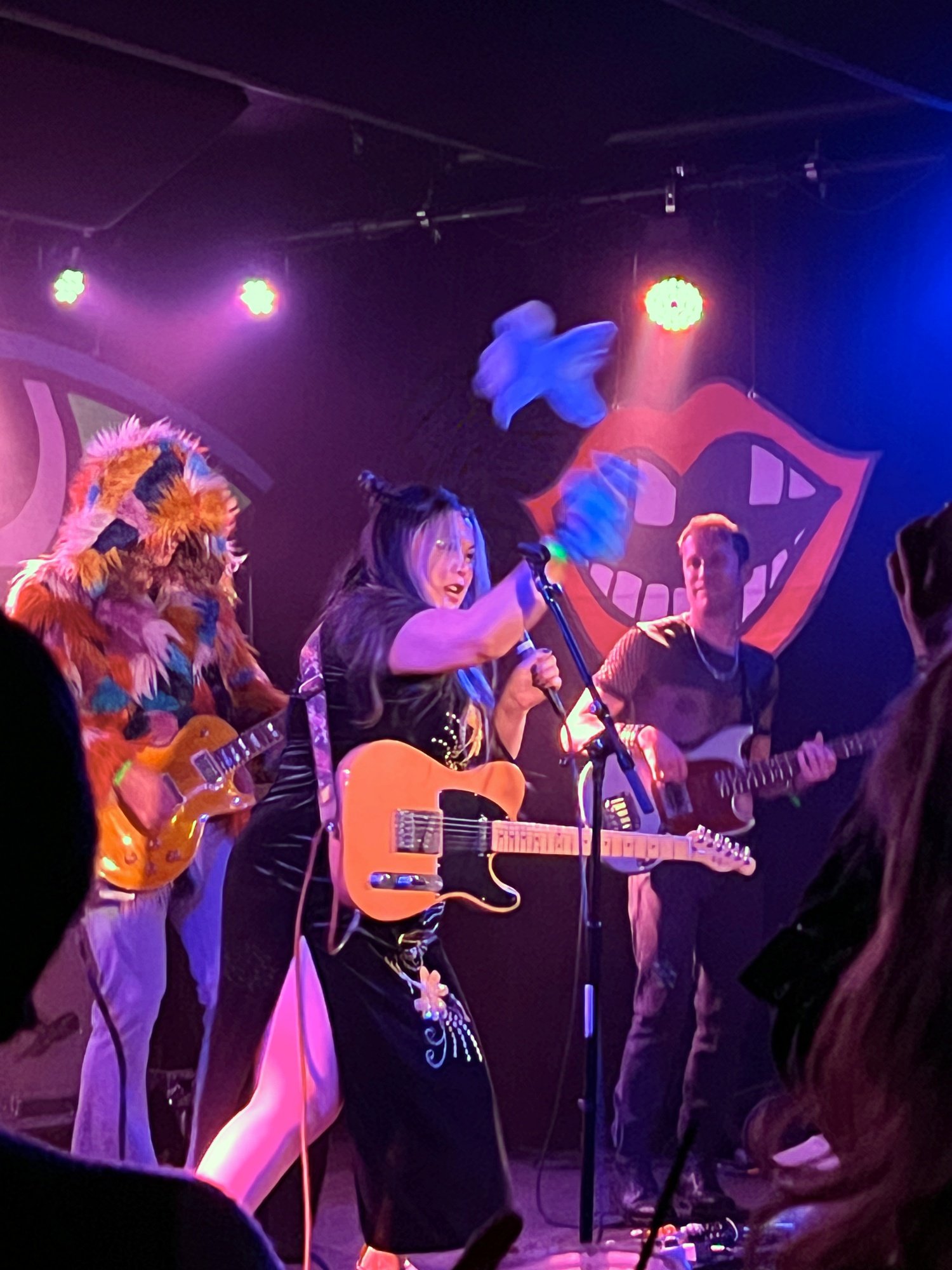
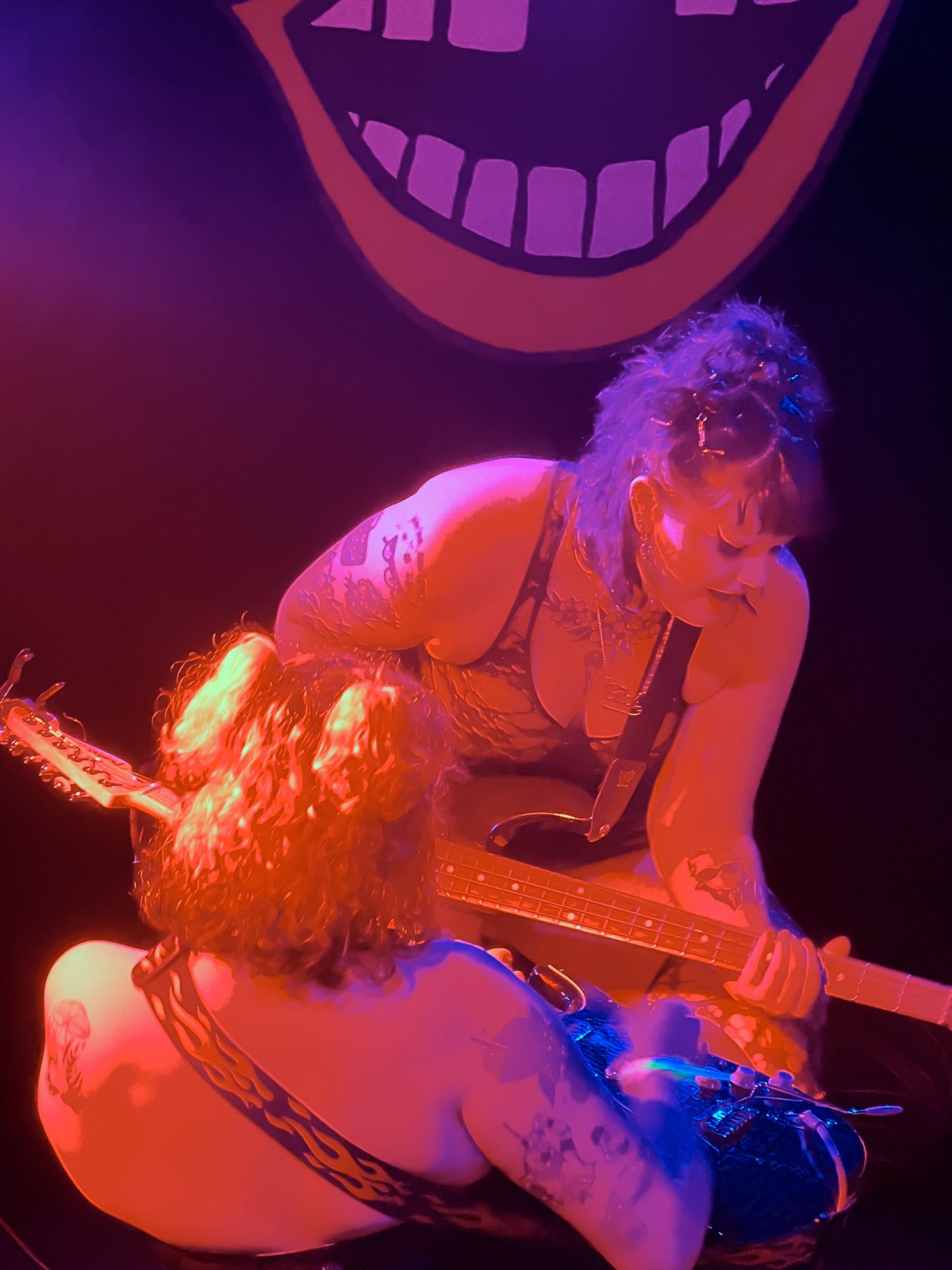
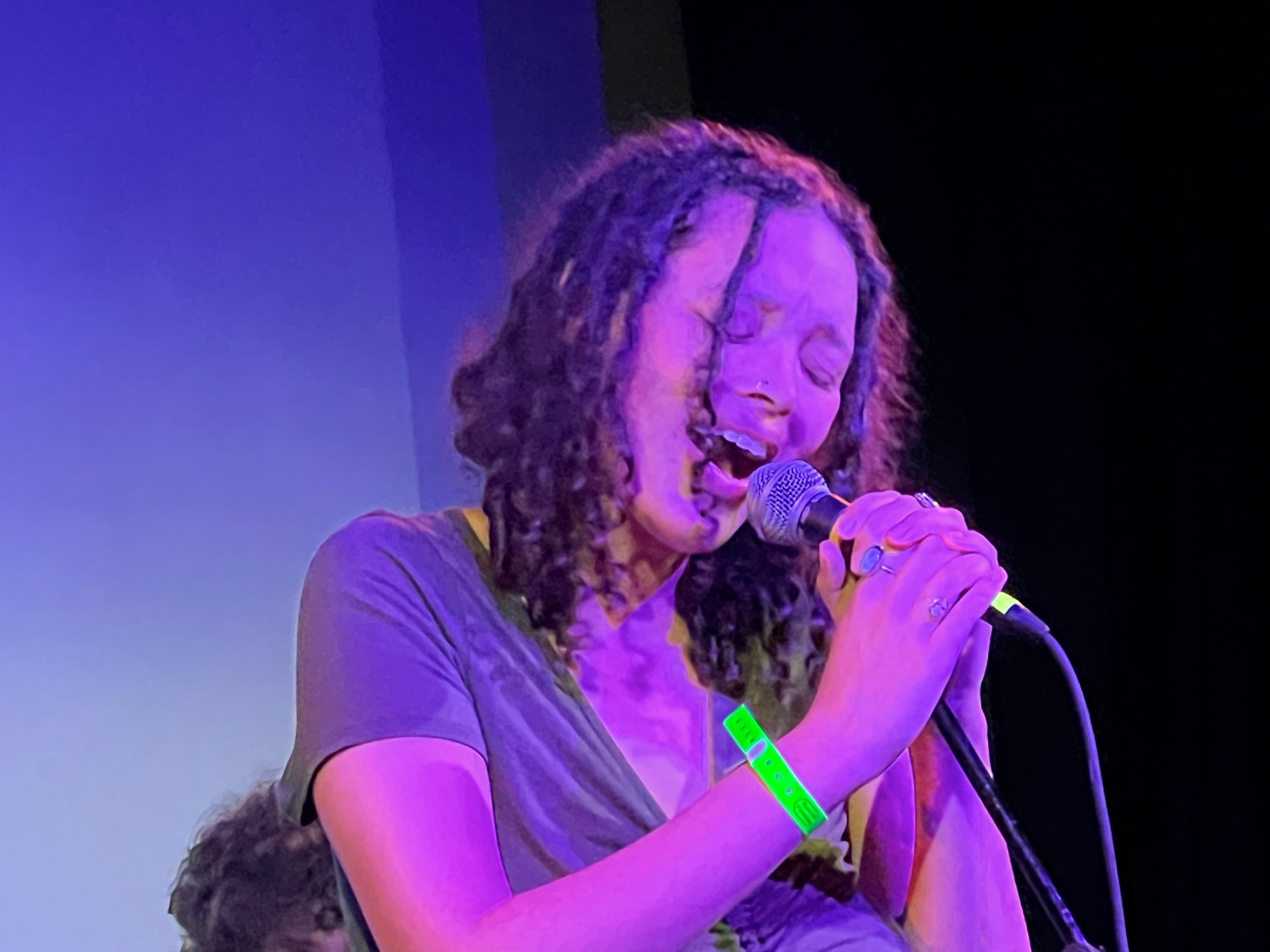
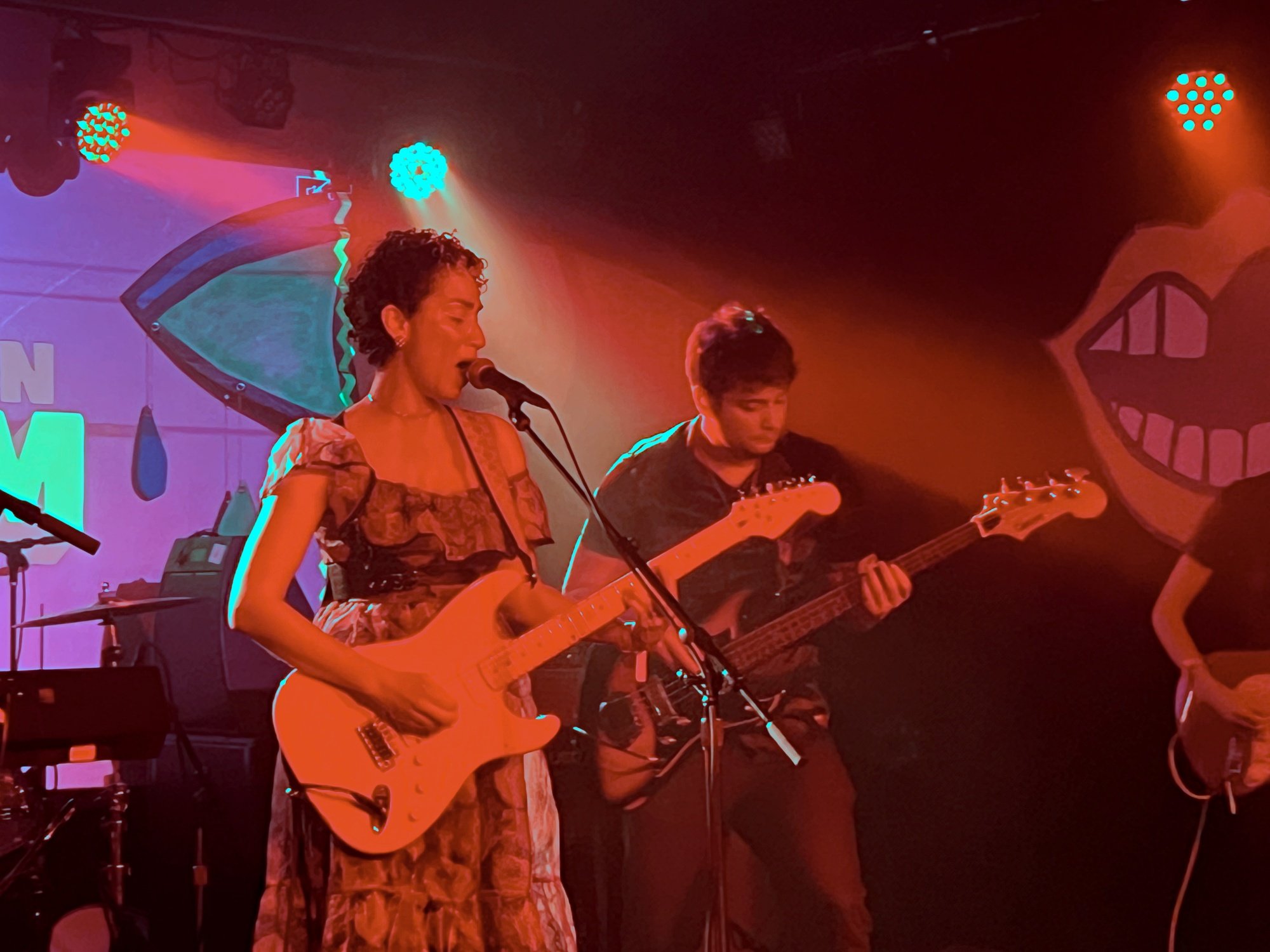
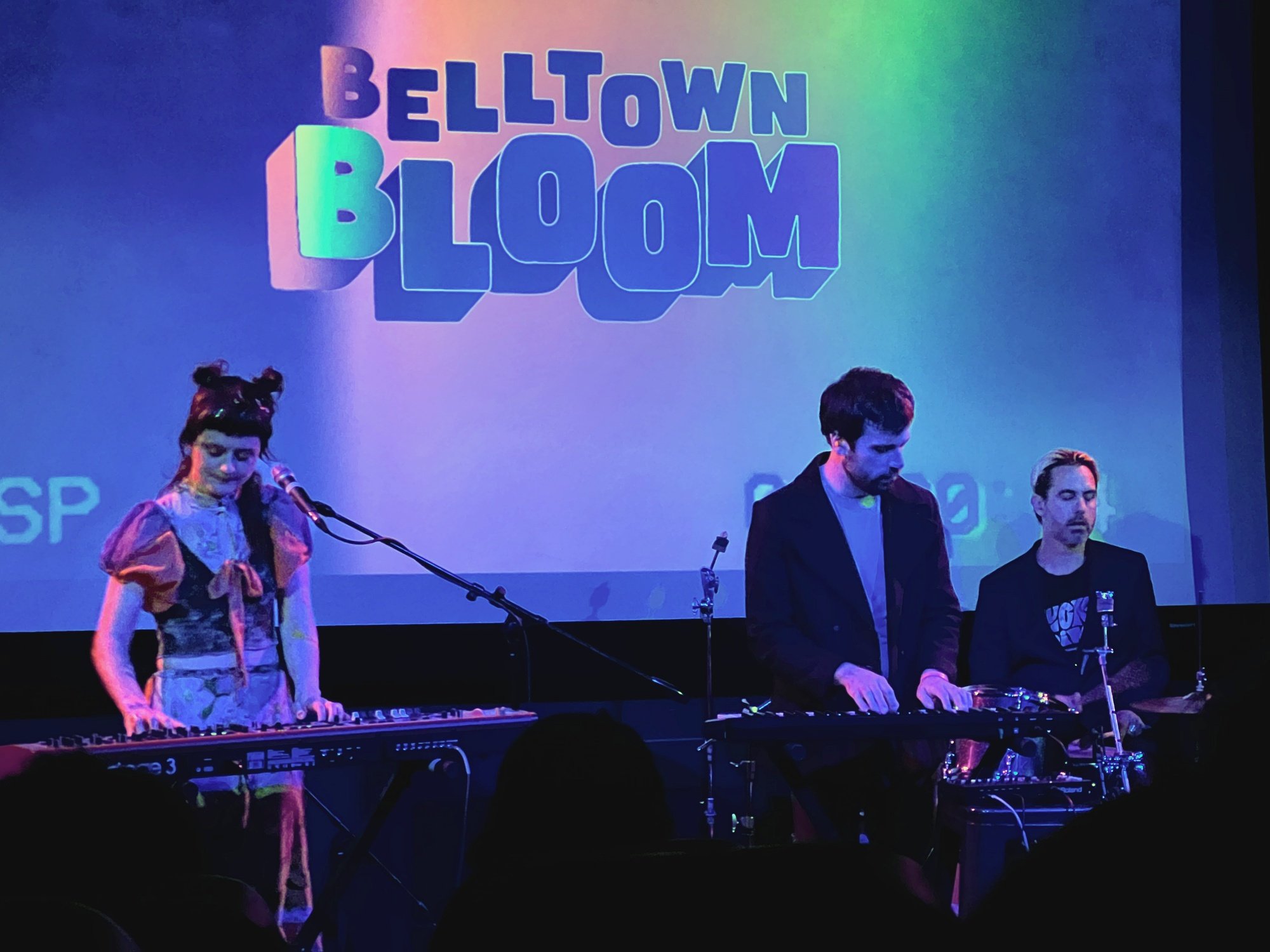
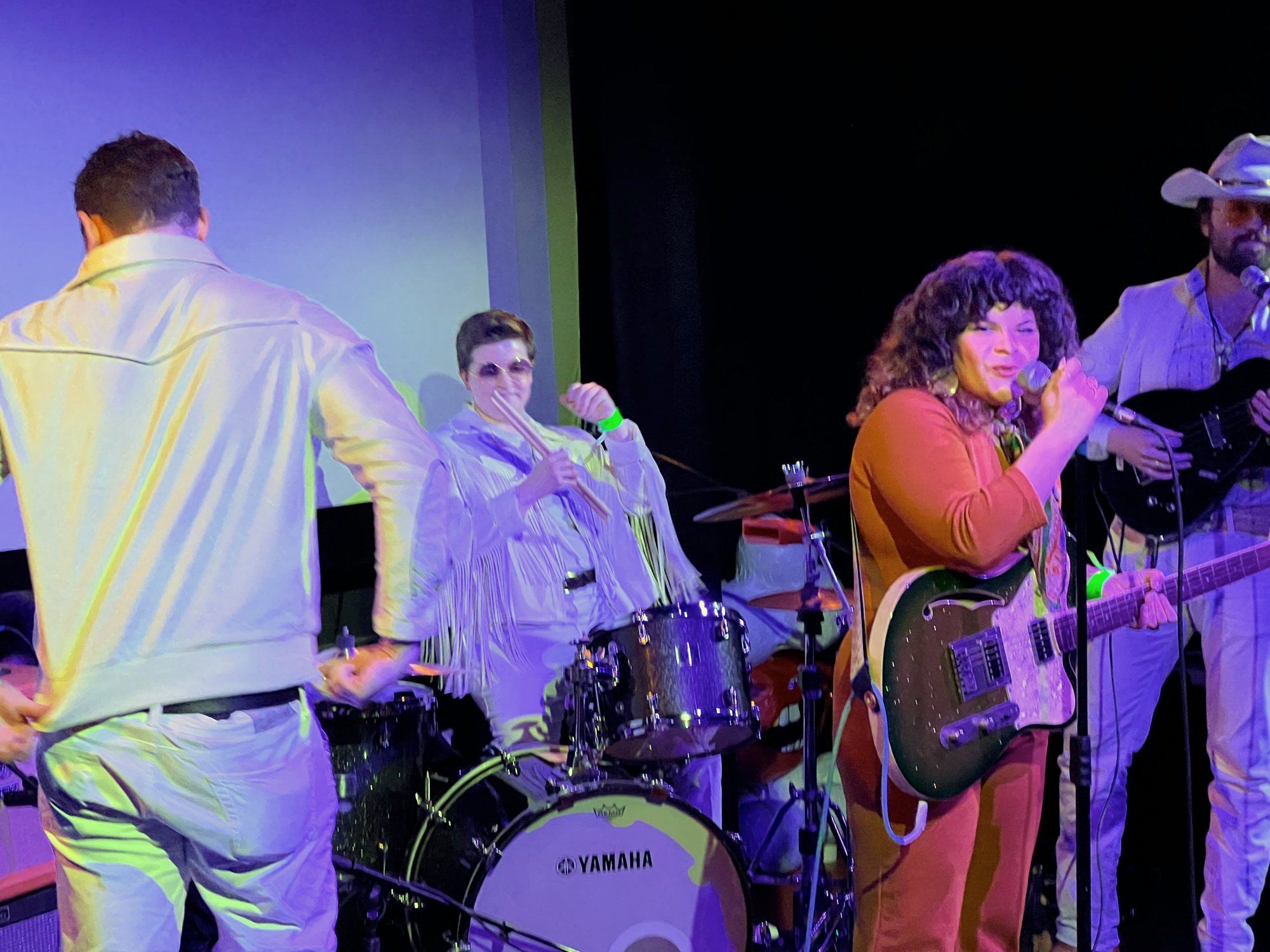
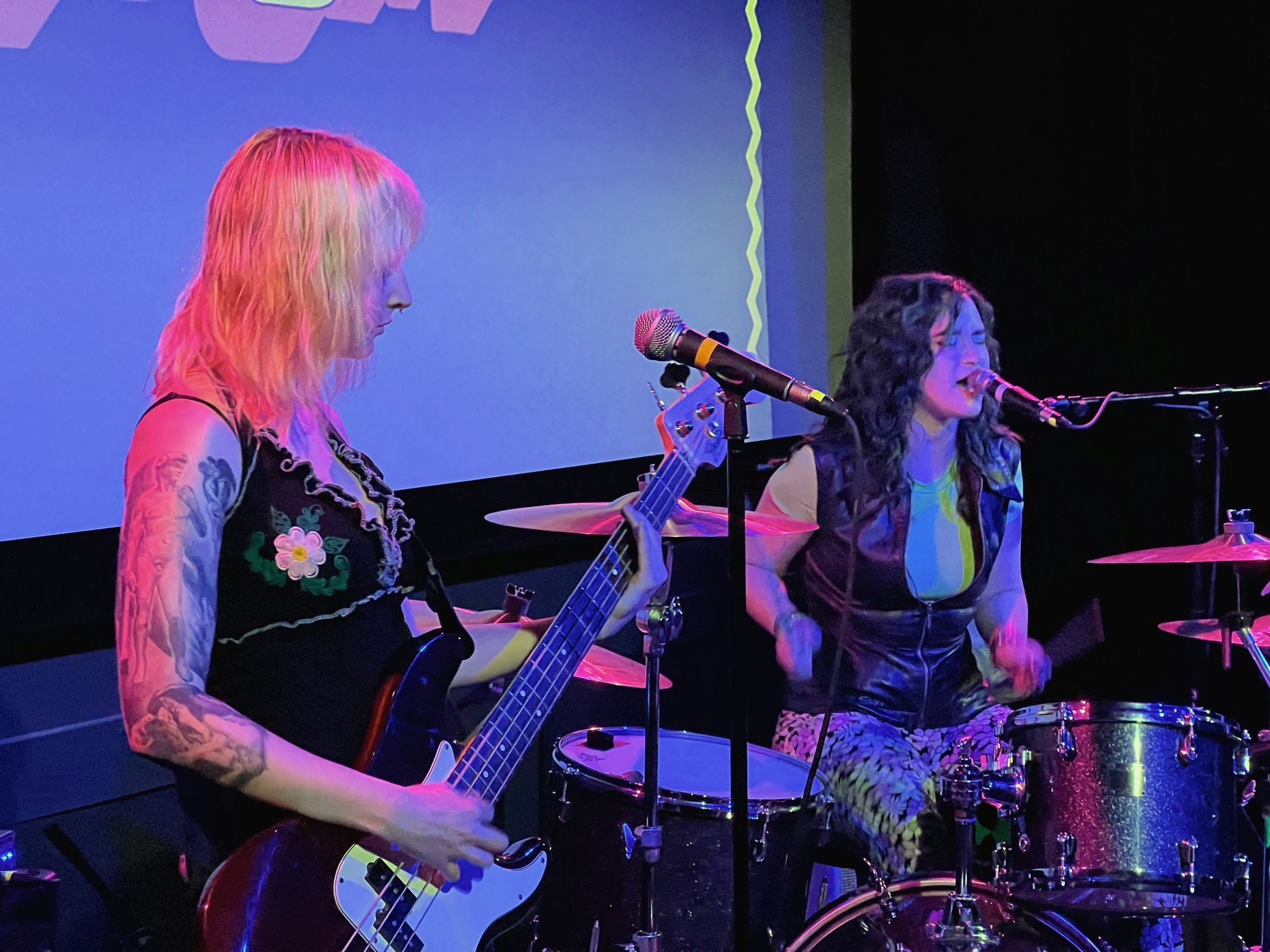
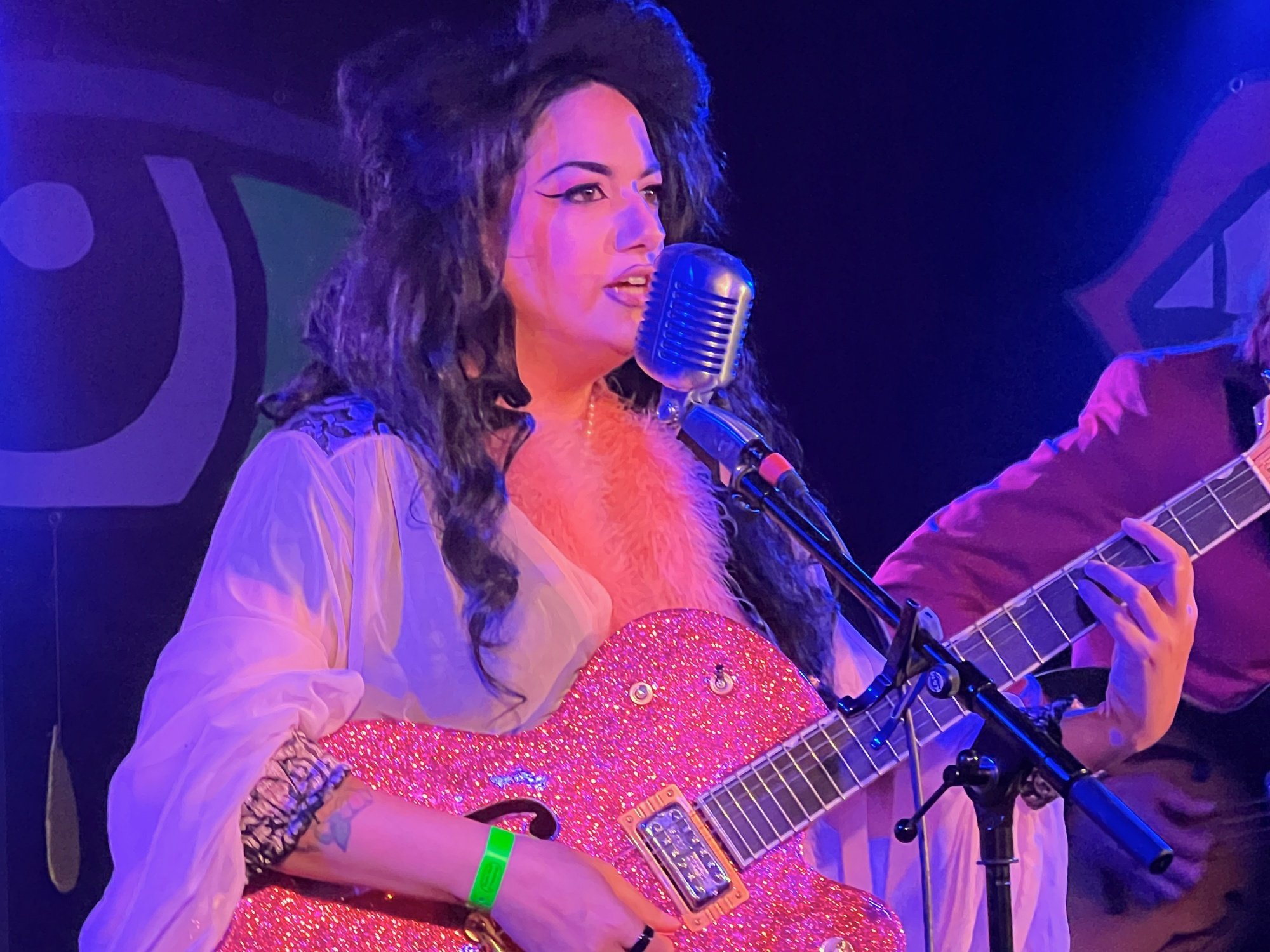
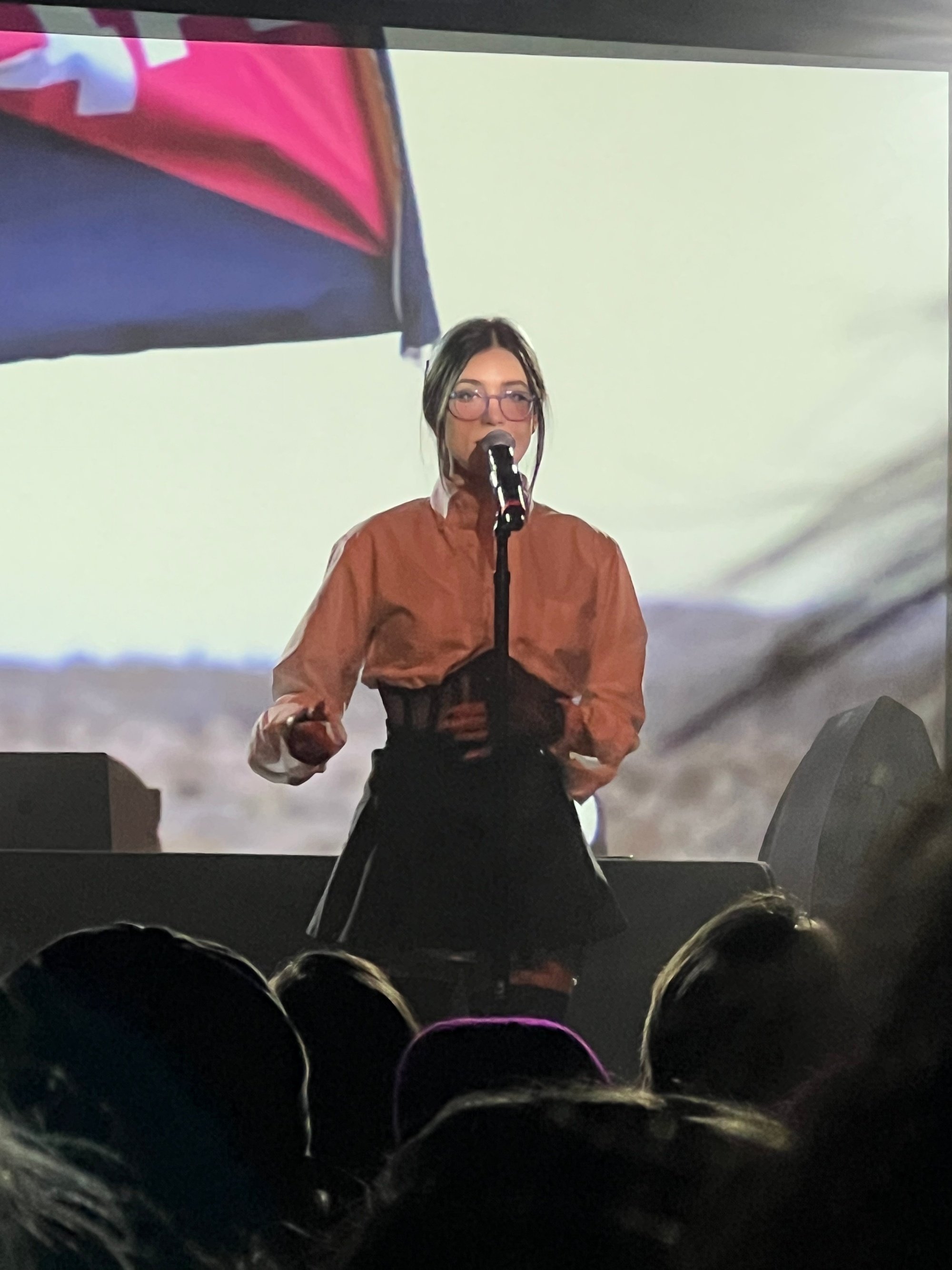
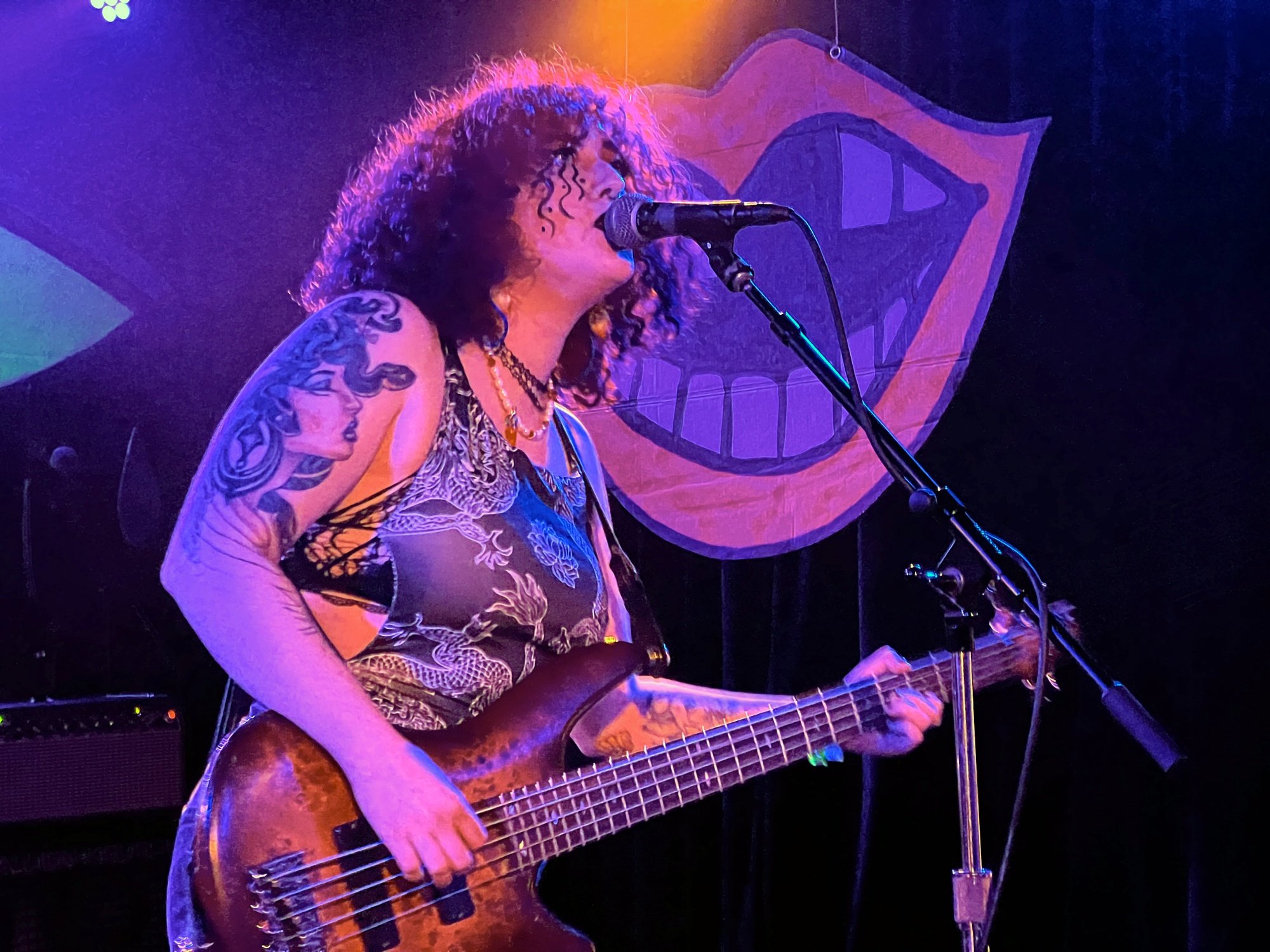
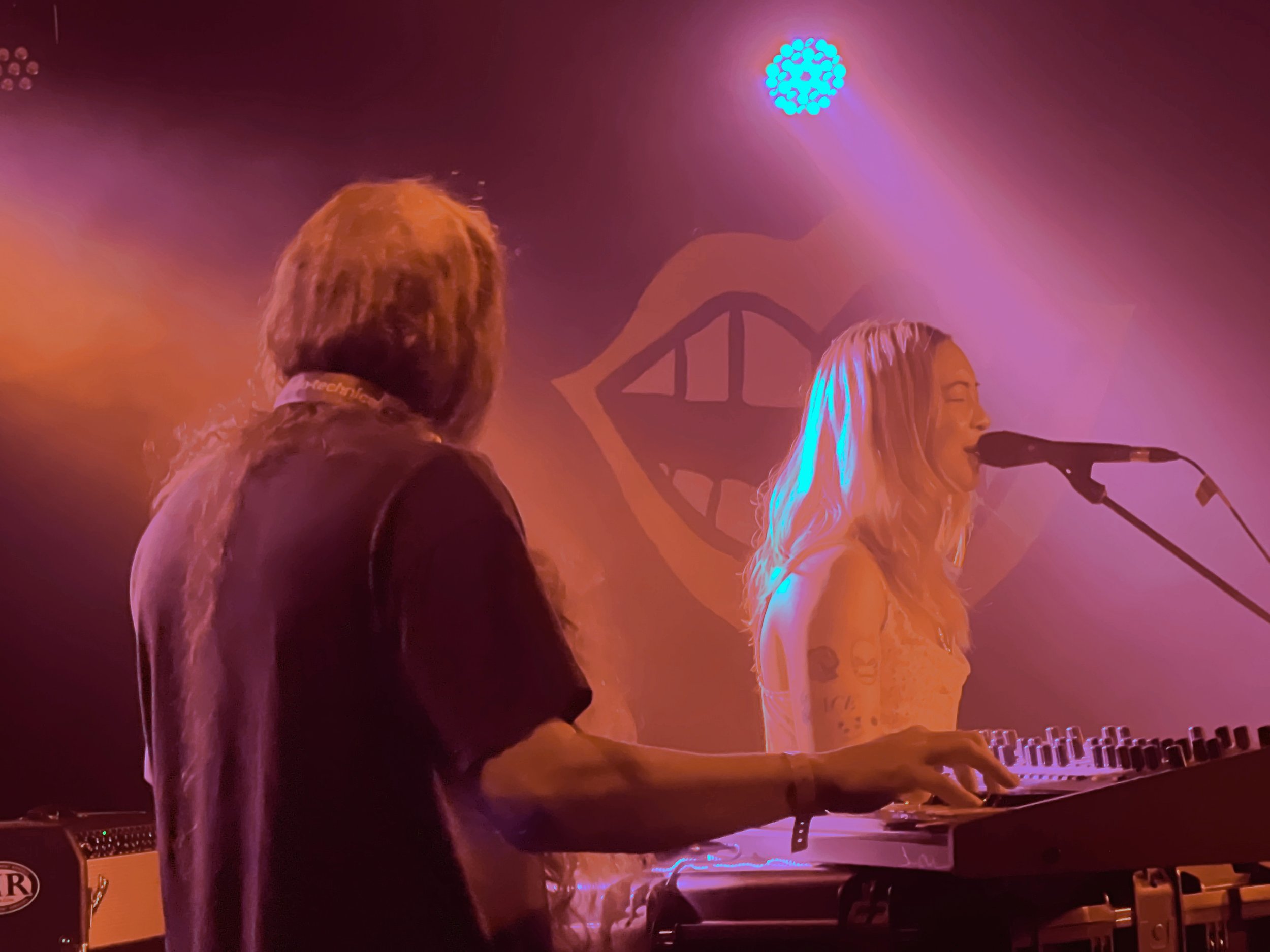
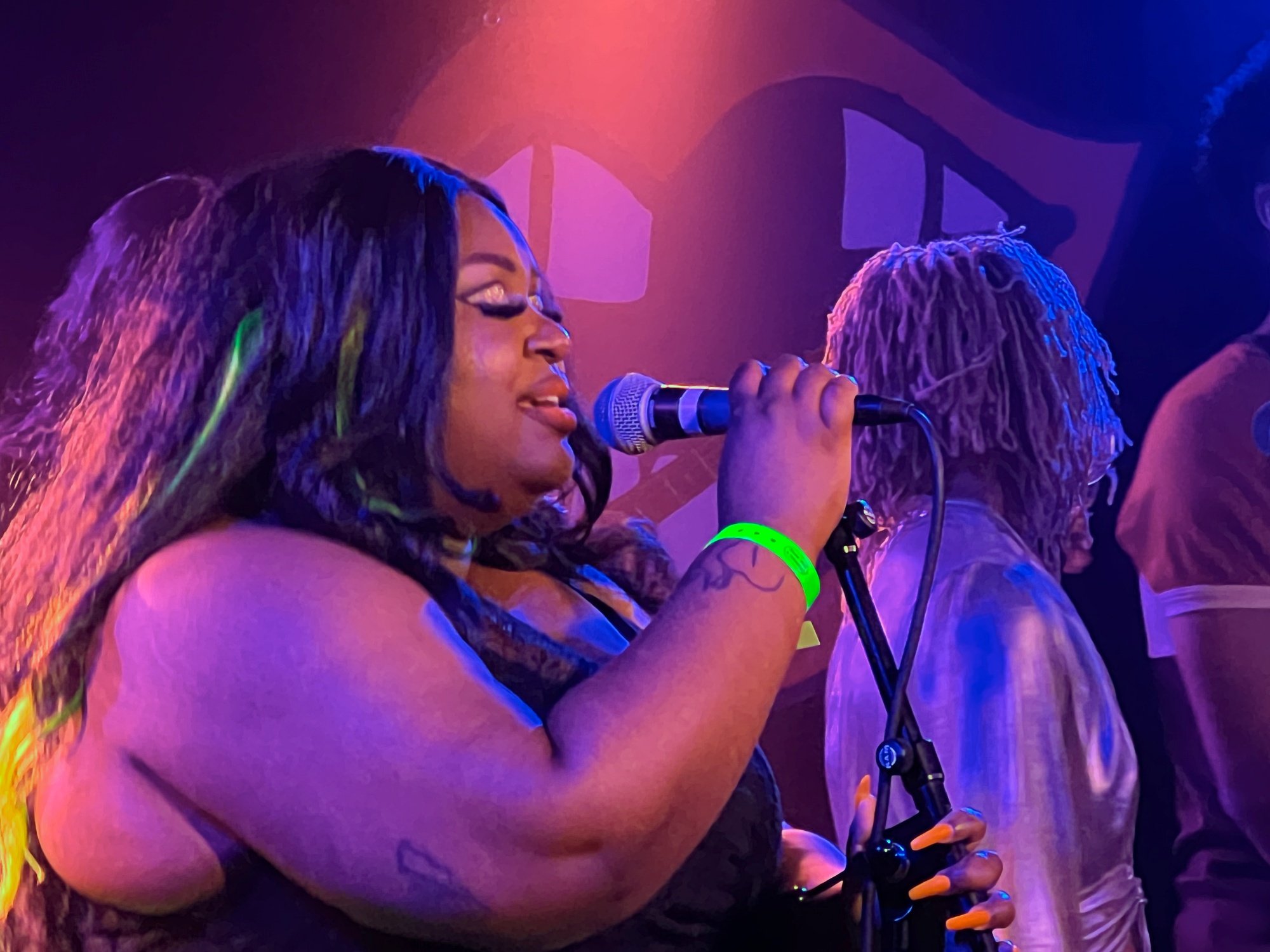
Most of the acts that were new to us played on Friday, which also ran the longest of the two days. Saturday’s work obligations kept us from staying for the whole day, but we still managed to catch a ton of acts, including Samara Lennoxx’s harrowing tales of queerness and mental trauma, Kelsey Sprague’s big-hearted country-tinged folk, and the chaotic merrymaking of Drea & The Marilyns. It was also the day we got adjusted to the environment of the festival, which featured a charming photo booth, specialty cocktails, and a whole lot of people. Like a lot of people; we were both comforted by the volume of locals in attendance, and especially by how many of them consistently chose to circumvent the main stage acts in favor of its stranger, less popular ones.
The only main stage act Alicia and I managed to catch, and only briefly, was Pussy Riot’s incendiary set. We only caught the first ten minutes of it, so we can’t be sure how it ultimately played out, but the moments we saw reinforced the specialness of the act. From its conceptually jaw-dropping short (involving a symbolic botting of Vladimir Putin’s ashes) to Nadia Tolonnokov’s unpredictable funhouse approach to electropop, the set visibly left a huge impression on the packed crowd. Though I’ve yet to be swayed by the group’s recorded music, the show demonstrated that Pussy Riot is a live act first and foremost, and it’s a privilege to attend it.
Rob: Pretty much every act left an impression on me, so it’s a tough call. I have to give it to Zookraught for being one of the best goddamn bands in the city right now. This was my second time catching the trio, and the command they had over their sound hit me all over again. I’m bestowing honorable mentions to Prom Queen’s incredible dynamic control, and Mold Mom’s riot-grrl time capsule of a set.
Saturday boasted a bunch more familiar names (to us at least), although several of them were ones we hadn’t yet seen live. It was also the day that we got to check out the Artist Lounge, a place for the festival’s many performers to decompress before or after their sets. Held in the Crocodile’s hotel space, the lounge featured a live DJ, (on the turntables this night, Mary Robins of Biblioteka), burgers from Dick’s, and (delightfully) a place to construct friendship bracelets.
The vibe at first felt a little more muted than Friday, perhaps due to the revelry of the previous day, but the energy started building quickly across each finished set. The sense of momentum that can build across a festival’s programming is honestly what makes festivals such a joy to attend, and why they can achieve higher highs than a typical three/four band bill. Day Soul Exquisite struck the match with their goosebumps-inducing “Abattoir,” and from there we were treated to acts like Byland’s raw-nerve rock, Prismia’s fantastic cover of “Rebel Girl,” and Coral Grief’s trance-inducing dream-pop.
All of that momentum built to an arguable climax the moment La Fonda took the stage; it was undoubtedly their night. As the organizers of the fest, they had the opportunity to prepare a barn-burning set, and they didn’t disappoint. The bold decision to book themselves during Mannequin Pussy’s slot paid off once you noticed how many people had shown up to watch them knock out the material off of their new record. Despite a few uncontrollable technical difficulties, they slayed, so hard.
Again, work obligations kept us from staying until L7’s set, but that doesn’t mean I can’t stress how perfect they are as a headliner. In the band’s heyday, the all-female four-piece was an outlier in an environment dominated by men, and they operated in a genre where the male voice was not only centered but instrumental in the development of rock across the decade, to the point of parody. I don’t believe it’s hyperbole to state that nearly every band on display at the festival can be linked back in some way to L7’s heavy, chugging rock. Their mere presence at the festival highlighted its purpose.
Just like Friday, I enjoyed every set, truly! It’s equally tough to pick just one favorite, but if I had to, the honor would go to Vicky Farewell, whose featherweight electronic pop (I’m calling it “elevator pop”) heavily won me over by its end. But I also personally resonated with Medejin’s dark ethereal rock and Mt Fog’s live iteration of her unique synth-pop.
Make sure to check out all these acts via the posted links! Every single one of them is worth it!
And apologies to anyone whose set we didn’t catch, I’m gonna link them down here:
FRIDAY
Aline & Wes - Rock/soul duo from Seattle
Foamboy - Eclectic electronic pop from Portland
Jaiden Grayson - Multidisciplinary Seattle artist, focus on R&B
Cat Valley - Feminist punk/pop band from Bellingham
Cherry Ferrari - Slinky electro-pop from Seattle
Rub - Seattle pop/rock supergroup (Salt Lick, Acid Tongue, Trick Candles)
SATURDAY
Ayleen Valentine - Chill pop from Miami
Terra Nobody - Synth-led alt-rock from Seattle
Ancient Pools - Portland-based synth pop
Vanilla Abstract - Singer-songwriter pop from Seattle
Flesh Produce - Experimental EDM from Seattle
(Also apologies for taking the world’s worst photos. I don’t own a professional camera.)
